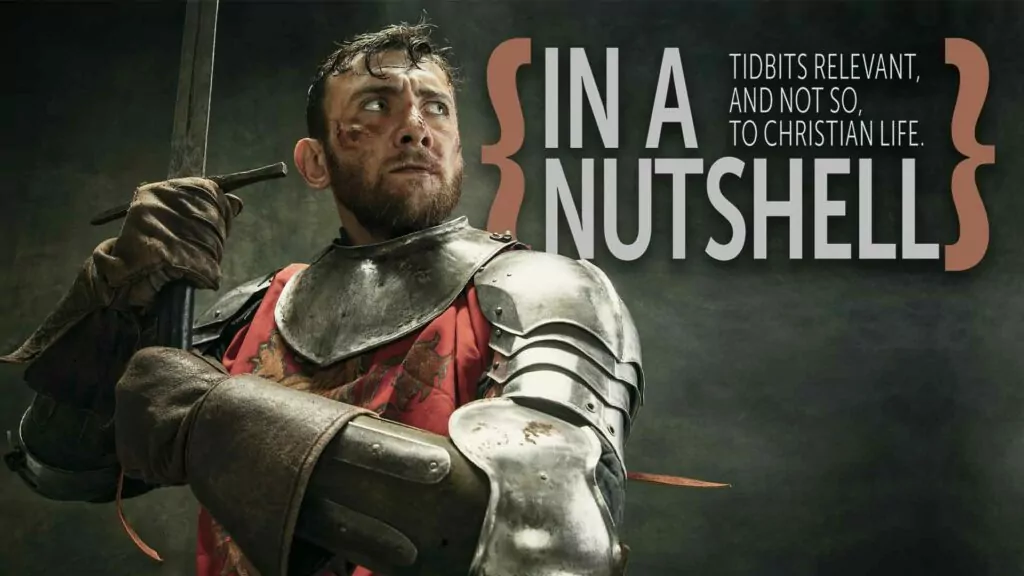Solving loneliness
“ revealed that 46 percent of American adults report feeling lonely sometimes or always. In that same study, younger adults reported feeling lonelier than their elders, with those aged between eighteen and twenty-two the loneliest of all.” – Jeremy Nobel in Project UnLonely
*****
I used to latch onto quotes like this, because they made loneliness acceptable beyond the regularly-discussed groups of the sick, the elderly or the widowed. Loneliness is devastating for anybody, but I had the sense it was more acceptable for some people. “Normal people” – by which I thought of people like me, people on the younger side with their life ahead of them, who had jobs and knew lots of people – weren’t supposed to be lonely.
But in the last decade, talk of loneliness has exploded for everybody. Loneliness has been declared a “pandemic,” there is a “friendship recession,” and “deaths of despair” are rising. Everyone in modern society is lonely, even the young, and it’s getting worse.
This means that if you look around you, many people are probably lonely, including people who don’t look like your idea of the typical lonely person. If you’re lonely, chances are many others you meet are too. And it means that even though your loneliness can feel like it is “all your fault,” there must be something about our modern world that is making the rates of loneliness increase.
If the obvious answer to loneliness is community, then being part of the church community should solve the problem of loneliness. So why are so many church people lonely as well? Let’s take a look at:
what loneliness is
what you can do
what the Church can do about it
1. LONELINESS HURTS
When I felt the most alone in my life, it felt like pure agony. Until that moment, I did not realize the depths of loneliness could feel like that. But why?
First, what is loneliness? A simple definition of loneliness comes from Harvard professor of psychiatry, Robert Waldinger: “the sense that I am less connected to other people than I want to be.” This makes it different than just being alone. After all, some of us enjoy being alone, and some of us feel lonely in a crowd. Loneliness is actually the feeling of being alone or isolated, and so loneliness is something subjective. It’s something you have to ask others if they’re feeling.
This is what makes loneliness tricky, because it’s not always obvious on the outside. And circumstances that might make you feel lonely might not make someone else feel lonely in the same way. Uncovering loneliness requires actually connecting with someone, ironically.
The amount loneliness hurts can be underestimated unless you've experienced it yourself. But why would it hurt?
Humans weren’t created to be alone. We know this from Genesis 2. But we also know this from the extreme difficulty of surviving entirely on your own. While there are survival stories where someone is lost in the wilderness for months, in general those separated from their group struggle to survive. So it’s no wonder we feel vulnerable when we don’t have anyone to rely on because we are vulnerable and in danger – not as vulnerable as if we were lost in the woods, wondering where we can find our next meal. But our bodies still perceive the lack of other people’s presence around us, and for many, that’ll get their brain screaming at them, danger, danger, danger!
You might know intellectually that you are never alone because God is there, but can you feel it? Sometimes you can, and sometimes, like Adam in the Garden, you can’t shake the feeling of being alone.
Not only does it logically make sense that we’d react to the vulnerability of being alone, there’s evidence that our bodies seem to register loneliness like pain too. Scientists have found that areas of the brain that “hunger” for food react similarly when you “hunger” for social connection. MRI studies have found that areas that light up when you’re in pain also light up when you’re rejected by others. It’s not totally crazy that loneliness can feel like pain either – like pain, it can signal us to change our behavior. Perhaps God meant to remind us through these sensations that He created us to care for and live in relationship with other people.
Unfortunately, loneliness can lead to a negative cycle. You become less trusting of unfamiliar people when you're lonely, and more likely to view them negatively. You imagine they view you negatively too, and this doesn't get disproven because you pull away from others. And in turn, people can find you unpleasant to be around, since you’re more protective and less trusting.
This cycle works to keep you lonely and isolated, and it takes great energy to break that cycle and open up to others again. This explains why sometimes you reach out to someone you know is lonely and they’re not receptive. It’s not easy to climb out of isolation once you’ve fallen into it.
Lastly, what makes loneliness complex is that it’s not a single experience. You might think, I know what loneliness is, it’s uncomfortable but I don’t know what she means when she’s talking about pain. Well, everyone’s experience of loneliness is different. Why, after all, do some feel lonely when surrounded by people? They’re experiencing the crowd differently than the others in the crowd.
Or take the vastly different life experiences that can lead to loneliness – a senior who can’t leave her nursing home, a husband who lost his lifelong companion, a child who just started at a new school – do all these types of loneliness feel the same? Do all people react to them the same way? So the label, loneliness, on its own doesn’t always explain exactly what a person is experiencing.
Loneliness matters because it causes us to really suffer, even before we start to count the health problems that often stem from it. And it takes effort to break the cycle.
2. YOUR ROLE
It’s not “all your fault” if you’re lonely. The common advice given can make you feel that way because it’s so action-oriented. You’re told:
Just put yourself out there even if you’ve been doing that for years and haven’t seen many results from it.
Invite people over even when it feels like pulling teeth to find a time slot on people’s calendars when they’re free to visit.
Just be content even when the person giving you advice has no idea how tiring it can feel to make every single life decision alone.
And reaching out to others for help can be difficult too. To say you are lonely can feel like you are opening yourself up to the scorn of the world, like a stamp on your forehead: No one likes me. It’s the pain of rejection, combined with the judgment that maybe you’re lonely simply because you weren't doing enough.
Much of the rising problem of loneliness comes from the world around us. We don’t live in small communities where it’s possible for everyone to know everyone, and people now move from place to place a lot more. You might just be getting to know someone and then they get a new job across the country. Some of it is the pace of modern life, and the burnout many of us are experiencing just trying to keep up with rising bills and inflation. It’s hard to make friends when you work long hours, or if you’re wrangling two toddlers and caring for your elderly parents 24/7.
Some of it is the way our cities are built, with a lack of places for us to casually run into our acquaintances often enough for them to become friends (which is actually the most common way to make friends – simply seeing them frequently). And some of it is the faceless technology we use every day which strips away personal connection in favor of apps, chatbots and algorithms. So no, it’s not all your fault.
But that doesn’t mean you are helpless.
As with so many other things in life, it’s about letting go of what you can’t control, and working with what you can. We can’t remake the modern world. At the same time, change can only start with ourselves. Our ancestors knew this, every time they spread the seed and prayed for rain. We can only do what’s in our control.
So back to loneliness. What can you do?
You can take the risks, and make the sacrifices.
Accept the friction of living in community
Loneliness is painful, but connecting with others can be bitterly painful too. The simple truth is, it’s hard to live with other people. We can have a negative view of “people” for good reason. People aren’t trustworthy, people do hurt us, people can irritate or insult us.
Relationships involve friction, and we’re getting less and less used to that. Friendship is both being vulnerable with someone, and managing the tension of hanging out with someone who doesn’t always think like you. So having connections and relationships can feel like a burden, and a burden is heavy when we’re already burnt out by so many other things.
Maybe because we think of community and relationships as being fun and easy, then when they’re hard we’re stopped in our tracks. Maybe because we know community is a blessing, we forget about the thorns and thistles. Then, when the beginning of building community is often so very hard and fruitless, we think we’re doing something wrong.
After all, through technology, we’ve made “connecting” easy. You can find people with the same specific interests as you, however niche they might be. And you can talk to people without leaving your house. You can see people’s faces from far away. You can remove people you disagree with.
As relational psychotherapist Esther Perel puts it:
“We do not have the practice at the moment. Everything about predictive technologies is basically giving us a form of assisted living. You get it all served in uncomplicated, lack of friction, no obstacles and you no longer know how to deal with people.”
In fact, because technology makes it easy to find “someone else,” and because it seems possible to find people who think exactly the way we do, we are more likely to expect others to adapt to us. We become less used to the flexibility we need to live among people with differences.
But community is hard. Community is not finding someone who thinks identically to you, and spending all your time with them, but instead about feeling that friction, sometimes living in the discomfort, sometimes changing your mind and other times agreeing to disagree. It’s about learning what parts of yourself you hold loosely, as well as learning about the more difficult parts of yourself.
Community isn’t meant to not take sacrifice. As Stephen Junger puts it in his book Tribe, after describing the quiet life of someone who worked hard for his community:
“He understood that belonging to society requires sacrifice, and that sacrifice gives back way more than it costs… That sense of solidarity is at the core of what it means to be human.”
So yes, it can be painful to live in community, but unlike the pain of loneliness, it can pay off in the end. Despite the effects of sinful human nature, belonging to society reminds us of what it means to be human, of what God created us to be. You see yourself reflected in others, you attempt to build new things alongside others, and your ideas are shaped by bumping up against what other people think.
The first step is to take the risk – to make that sacrifice without knowing what the “pay-off” looks like.
The sacrifice of time
One of these sacrifices is time, because it takes time to know someone. This was admittedly easier when you’d interact with the same people frequently (such as back when you were in school). Then it was just built into your daily routine. When you’re lonely but busy, it can be exhausting to think of adding another thing to your “to do” list, to fit in regular contact with someone new. But you cannot build community without investing time.
Sometimes there simply aren’t enough hours in a day. But when you can free up time to get to know someone new, it can re-energize you in ways your tired brain didn’t expect, through the different perspectives and fresh outlook on life that other people can bring.
The sacrifice of effort without knowing results
It’s a sacrifice too, to put in the effort even when there’s no guarantee of results. If we knew we’d always feel great every time we talked to someone new, we’d probably do it more often. (In fact, studies have shown we underestimate how much enjoyment we’d get out of talking to a stranger.) But when talking to someone new, there is often a stage where it feels like we’re going through the motions, politely making small talk. And worse, this investment in conversation might not “pay off”– this person might not turn out to be someone we connect with as friends. But while it might sound exhausting, it might not be as exhausting as you think to smile at the cashier or make small talk with strangers you meet. Even if not every interaction rises to friendship, you’re open to the possibility that they could.
We want friends that are comfortable, that we can just show up for and not need to put in the effort. But to get there takes an investment of effort without any guarantee you will ever connect on that level.
The sacrifice of opening up
Lastly, you’ll need to take the risk of being vulnerable. There’s no connection without true vulnerability with another person.
You do not have to be vulnerable with everyone you meet, and there is an argument that people sometimes reveal too much about themselves too quickly in our age of authenticity. It is wise to choose whom you talk about the deepest parts of your heart with carefully.
But the only way outside of yourself is to open yourself up. This can be as simple as admitting loneliness to someone else.
You’ll need to act in hope to overcome loneliness, because loneliness sucks you into negativity. Loneliness can convince you there's no way out – that the world is hostile and everyone hates you. Instead, climb towards hope. You don’t need everyone to like you, you just need a few to connect with, and to know that they do exist out there somewhere. Proceeding in hope will have you continuing to put yourself out there to find them. In the current climate, optimism is in short supply, but as Christians we know there’s hope no matter how bad things get. We have the freedom to be optimistic.
I’ll stop there with the suggestions before it does start to sound like loneliness is all a result of what you do (or how you think). In the end, it’s about looking at what is in your control, working with that, and letting go of what’s not in your control. Letting go and letting God – we plant our seeds and pray for rain.
We can’t solve everything
And here’s one last painful truth – not all loneliness can be fixed. You can’t ever replace someone’s lost spouse. You can’t resolve everyone’s life experiences – there are sometimes reasons a person will feel alone even among other people, because no one else has seen the things they’ve seen. Things like burnout, and bad finances, and people moving or dying, can get in the way. It’s even possible that the community you happen to live in is dysfunctional in a way that isn’t healthy, and you can’t adapt yourself to that.
Sometimes we can't control everything, we can't “fix” everything, and loneliness will hurt us. “Darkness is my closest friend,” laments Heman the Ezrahite in Psalm 88, and so we know even this feeling was well-known to Christians before us. In this broken world, not all things are fixed, but we always always can hang onto hope, knowing the perfect fellowship that is to come.
3. THE ROLE OF THE CHURCH
We can think of loneliness as a problem “out there” because here in the Church we have community. But the Church is not immune to the impact of modern society – its faster pace of life, more technology and distractions, and increased individualism. When I mentioned I was writing this article, I received a flood of comments from Church members who could relate to loneliness for a variety of reasons. Yes, members of the Church shouldn’t have as many reasons to feel lonely. But that doesn't mean that we don't experience it.
So what can the Church do?
Be the Church
A recent article by Derek Thompson, “The True Cost of the Churchgoing Bust,” argues that the loss of social ties might be connected to declining religion in North America. Churches (and other religious buildings) provide a communal gathering space where people meet regularly, giving them a space to interact and see others often enough to make friends. They also provide religious rituals (such as the Lord’s Supper) that take people out of the virtual world of their phones and into the here and now. “he religious ritual,” Thompson says, “is typically embodied, synchronous, deep, and collective.” You have to be present to experience it.
So one way the Church can help is simply by existing and continuing to do the things it has done for centuries.
But a hard truth is that showing up week after week for two services provides opportunity for community, but not community itself. Yes, you have come together with other people in an objective way, but if the connections don’t go deeper you may not feel very connected to other human beings at all. The rhythm of the Church community can be nice, because you don’t have to “make plans” for the activities that have happened in the Church for centuries. But sometimes you need to pour your heart out to a listening ear, and that kind of activity still does need to be scheduled.
Recognize the problem
What more can the Church do? One thing the Church can recognize is how deep the problem runs.
We can be aware that the existence of a congregation might not be enough to erase loneliness among us. When you’re lonely, you feel invisible, and by recognizing loneliness is a problem, the Church can begin to help the lonely feel seen. However, this is more than just sympathy – too often an admission of loneliness is met with sympathy and nothing more. Sympathy is not companionship, and can be isolating. It’s companionship that heals loneliness.
To say “I am lonely” is to be vulnerable without any guarantee of protection. Can we make it safer to admit loneliness to each other? Can we make it easier?
Another side to this is understanding the challenge of loneliness, and the negative cycle that can reduce lonely people’s trust in other people. To bring a lonely person into community might take more time than we expect. We will have to show them they can trust the Church, and that they’re safe opening themselves up to others again.
Show people where they belong
Next, a church can also give someone a “place.” A better way to say it might be a “sense of belonging.”
Modern life has brought not just a change in technology and urban sprawl, but also a change in our sense of belonging. In the past in our villages or tribes, we knew who we were and what we were expected to do. We knew who everyone else was, and we knew our role. Now we have gained a lot of freedom, but we’ve lost something too. We are able to constantly reinvent our “roles,” and even our “selves,” but in the end the burden of figuring ourselves out is laid on us.
But in the Church, there is opportunity to be reminded of where we belong once again. We’re brothers and sisters, we’re elders or pastors or members. You might have a task, or you might have a place to use your skills. Your place in the community is recognized by others – you are needed and seen by others. But we can be more deliberate about this, especially for those who aren’t “in office.” There are many who don’t fit into the traditional Church roles (pastor, elder, deacon, pianist, bookkeeper, etc.) who still need a place, and perhaps we can be more creative in finding ways for those who fall through the cracks to still feel they fit in in an important way. It’s those on the edges of the community who don’t feel like they belong, who don’t think they have a role and who maybe even think no one would miss them if they weren’t there. Reaching out and showing someone how they can grow into who they’re meant to be can make a big difference.
Be a community that accepts social friction
If we’re going to turn away from niche, online communities to real, face-to-face communities in the real world, we will have to get comfortable with the friction that living in community can bring. Since the Church community is built on truths that can’t be changed, differences among us can feel destabilizing. Of course we should never compromise the truth, but we also have to accept God-created individuality among us. If there is any place where iron can sharpen iron, it should be in the Church, but it is a challenge to find ways of doing this wisely. We can start by accepting the possibility of discomfort, as well as practicing charity to others when we can.
Sometimes friction may come from people’s past experiences, or past hurts. We can be patient, and not take all disagreements personally. We might need just a little more patience (and love!) than we thought.
Be a social space
Lastly, a church community can provide regular ways to connect beyond the worship services. Most of our churches already have many social events. But one thing to consider is the length of time it actually takes to make new, real friendships. This has been characterized as the 3-6 rule (three meaningful interactions with someone within six months), or as the 11-3-6 rule, described by Madeline Dore as “eleven different three-hour-long encounters, over the course of six months or so, to turn an acquaintance into an actual friend.”
How many of our social events provide this level of connection for integrating new members or new friends into our circles? This is a pretty high commitment when you think about it! Of course, it's not all on the Church itself to provide this, but a community can certainly think about whether it is making these kinds of deeper connections easier or harder to establish, as well as whether the current social events are easy for those on the fringes to be involved with (the singles, for example, or the elderly). Inviting someone to your house once every couple of months might not address the loneliness in their heart if that’s the only social interaction they’re getting.
We need to find the will to build communities again, or strengthen the ones we do have. In a world where social ties are crumbling all around us, this is more important than ever. But building community requires optimism, which is in short supply right now. It’s hard to build when we feel anxious about the future, vulnerable to threats, and divided. There’s a fear that what we build might not last.
But the Church has faced worse times before. And it was always by clinging to each other– and God – that we came through the storms.
CONCLUSION
If you’re lonely, I’ve been there. I know life can feel like it has a gaping hole in it if you're on your own. I know the comfort faith can bring while still feeling the intense longing for the presence of a human being beside you. I know how even the enjoyable things in life can feel pale when you don’t have anyone to share them with.
The Church is a community of broken people stumbling as we journey to heaven. We fail so often at providing the needed support to each other, we fail at being real and vulnerable with each other, and giving each other what will support us as we grow in faith. By making some small suggestions for where to start, I hope our Christian communities can see ways to open themselves up to the need around them and begin to heal the pain of living in a sinful world. The first step is recognizing and understanding the problem. From there, we can all grow as individuals and as the Church to become the kind of community that draws others in, simply because of the warmth and belonging that exists inside it....































